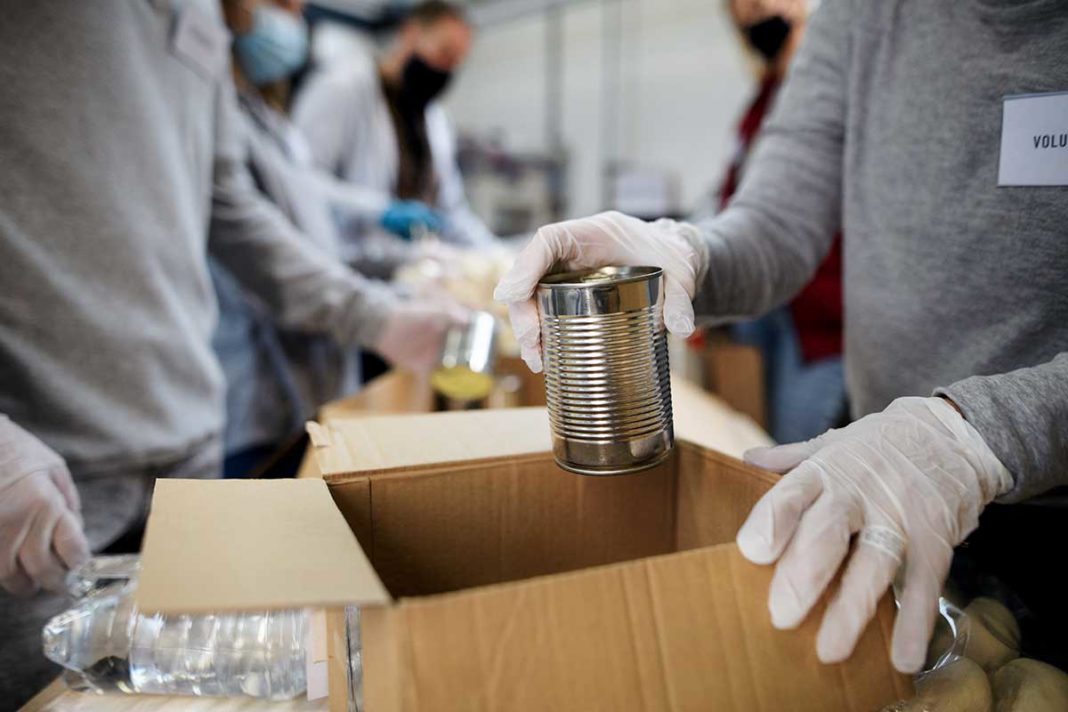MANITOULIN—Food bank usage on Manitoulin Island went up significantly during the first year of the pandemic, falling in line with numbers reported provincially. Feed Ontario, a collective of hunger-relief organizations in the province, reported in its newest annual report that between April 1, 2020 and March 31, 2021, food bank usage in Ontario rose 10 percent during the first year of the pandemic to the highest levels since the recession. The report indicates that nearly 600,000 people made more than 23.6 million visits to food banks in Ontario during that period of time.
“Yes, I think that is consistent with what we have seen the last couple of years,” stated Marnie Hall, executive director of Manitoulin Family Resources (MFR) in an interview with The Expositor last week.
“When COVID-19 first hit, things were relatively quiet, but then they skyrocketed, and then levelled off for about three months after that, but things continue to increase,” said Ms. Hall.
“With food supply chain concerns and the cost of food and panic buying, we have seen an increase in food bank use the last several years overall. Over a number of years, even for those people who are working, more and more are not being able to meet the needs,” explained Ms. Hall. “Even in families with two working parents in a household, in a lot of cases they still can’t meet their financial needs; and all these factors were in place prior to COVID hitting. Then COVID hit and we have seen increased housing costs, a housing crisis and those who got support like CERB (Canada Emergency Relief Benefit) have now been cut off,” as the federal program has been discontinued.
“All of those factors make it more difficult for a lot of families and individuals,” said Ms. Hall. She pointed out that, in large centres, people may have more access to multiple food banks, but again it is harder in small areas where there is only one food bank, like Manitoulin Island.
Siu Mee Cheng, the interim executive director of Feed Ontario, told Canadian Press that COVID-19 has exacerbated income insecurity and affordability issues in Ontario.
The number of those who needed basic food support has increased by 10 per cent this year, compared to the year before, which is the highest single year rise since 2009, the report reads.
The document reflects data collected by 132 food banks and 1,100 affiliated social support organizations in Ontario.
Ms. Cheng told Canadian Press the current social safety programs in the province, including Ontario Works and the Ontario Disability Support Program, are not comprehensive and those who rely on them still end up needing to access food banks. They represent 59 percent of all food bank visitors. She said social assistance programs are not sufficient enough to support individuals to purchase foods that they need and address their hunger issues.
Less than one per cent of those who accessed food banks were receiving the Canada Emergency Response Benefit (CERB) that the federal government introduced to help those who lost their jobs due to COVID-19.
The report shows that 86 percent of food bank visitors are rental tenants rather than social housing tenants and more than 50 percent of them said that housing and utilities costs forced them to seek basic food support.
The number of food bank users who were 65 years or older has increased by 36 per cent since last year and by 64 per cent since 2008.
The report found that older adults are nearly twice as likely to access a food bank, compared to those under 65 years of age. It also found that a third of food bank users were people with disabilities.
Ms. Cheng told CP some of the most vulnerable individuals are having to face hunger issues and that they are needing to turn to food banks in order to relieve some of those hunger issues.
When people lose their employment income they usually exhaust all their resources, including their savings and any support they may get from their families and friends before they access food banks, she said. She added that food bank use will probably continue to rise in the future.
In October, the number of Manitoulin District people accessing the food bank went down slightly, but in November this has picked up again, said Ms. Hall.
“Food bank use in Ontario has reached an all-time high, with current trends suggesting that numbers will only continue to rise into the next year,” the provincial report notes. “Further, there are a number of trends showing a worsening of conditions for several food bank visitor groups, including an increasing number of seniors and workers turning to food banks for support.”
“While the pandemic had an undeniable impact on the financial well-being of people and families across the province, the pandemic only compounded longstanding income insecurity and affordability issues in Ontario. This includes an insufficient social safety net, inadequate employment and income earning opportunities and a lack of affordable housing. While food banks are doing their best to help fill the growing gap between access to income and the cost of living by providing food assistance and programming, emergency services are not a long-term solution to systemic problems. Food banks exist when public policy is failing to meet the needs of the people or address structural inequities in the province.”
“As Ontario moves towards its next election in June 2022, it is essential that all parties develop strong income security and affordability public policy solutions and commit to working together to address food insecurity and prosperity,” the report continues.
“Further, it is also essential that all levels of government reaffirm their commitment and prioritize building a province and country where the right to food is realized, and where everyone is able to access a standard of living adequate for the health and well-being of themselves and their children, the report concludes.
“Yes, Feed Ontario has been advocating to the provincial government on all these issues and we are in support of these recommendations,” said Ms. Hall.





